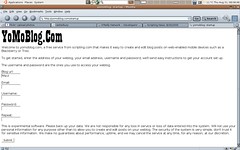Authors Can’t Rely On Publishers to Sell Books!
Authors Can’t Rely On Publishers to Sell Books!
I wanted to ask my editor, “Do you ever feel you’re navigating the Titanic?”
After all, publishing has hit an iceberg when giant bookseller Barnes & Noble decides to put itself on the sales block.
In the best days, the business model publishers used of consigning their products to retailers, was fundamentally flawed. When books didn’t sell briskly, retailers could return them for full credit, months and even years later. Still, for the longest time, the winning titles compensated for droves of losers.
My concern about the soundness of the consignment model dates back to my days as a top salesperson and then sales manager with Time-Life Books, the hardbound relative to Time, Life, Money, Sports Illustrated, and Fortune magazines.
At our division, we sold directly to the consumer, using what I suppose you might also
call a variant of consignment: the famous 10-day trial. We asked folks to evaluate the first title in a series, and if they liked it, if it sold itself, they would pay for it. If not, it could be returned without further obligation.
The average buyer went on to purchase a good number of books in the overall library, each reviewable for 10 days. Boldly, we invited customers to “Cancel anytime!”
We owned vast forests, my New York manager once told me, as well as the printing presses, and the means of getting our volumes into the consumer’s hands; our own circulation companies, for which I labored.
Nothing was left to chance. Our books sold well, because we sold them well.
The Titanic isn’t the best disaster metaphor to describe the state of book publishing, today.
It’s more like Pearl Harbor.
The Internet has perpetrated a sneak
attack. Instead of bombs and bullets and aircraft, the weapons used against publishers have been web sites, ezines, blogs; a veritable Flotilla of Free information and entertainment.
Ebooks promise to deliver some profits to publishers that adapt.
For most authors, books will sell well when we have sold them well.
We know this because today, conventional publishers insist that authors provide “platforms,” which is a word signifying paying book purchasers. If you are a fixture on TV and radio, or you speak before throngs in conventions, worldwide, you have a platform.
If you have a platform, why would you want to share your profits with publishers, who will give you nickels on the dollar, in royalties?
Authors need to become their own Time-Life organizations, taking total responsibility for the success of their titles. From conception to
purchase, the publishing life cycle is falling more and more into our own hands.
Dr. Gary S. Goodman is a top speaker, sales, service, and negotiation consultant, attorney, TV and radio commentator and the best-selling author of 12 books. He conducts seminars and speaks at convention programs around the world. He is the creator of “Best Practices in Negotiation,” a top-rated program at U.C. Berkeley and UCLA Extension and his new audio program is Nightingale-Conant’s “Crystal Clear Communication: How to Explain Anything Clearly in Speech & Writing.” He can be contacted at gary@customersatisfaction.com.
Dr. Gary S. Goodman is a top speaker, sales, service, and negotiation consultant, attorney, TV and radio commentator and the best-selling author of 12 books. He conducts seminars and speaks at convention programs around the world. He is the creator of “Best Practices in Negotiation,” a top-rated program at U.C. Berkeley and UCLA Extension and his new audio program is Nightingale-Conant’s “Crystal Clear Communication: How to Explain Anything Clearly in Speech & Writing.” He can be contacted at gary@customersatisfaction.com.
Article from articlesbase.com

